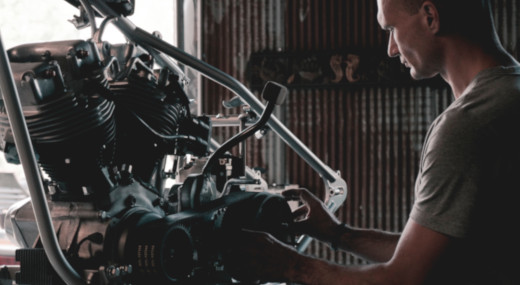Importance of employment
Some of these skills developed while serving can be found in almost every industry. These transferrable skills, disciplined work ethic, and cooperative attitudes should make finding work easy, but transitioning back into civilian life as a military veteran remains a challenge.
Employment is important for health and well-being. Being in work reduces the risk of becoming socially excluded and helps with self-esteem when roles in civilian life are being re-drawn. For those with combat stress, the right work with the right support from employers, colleagues, health and care professionals can actually aid recovery for people with mental health problems.
Importantly, the right employment actively can improve mental health and protect against relapse. It is worth pointing out that many civilians who are working also experience mental health problems and may have periods of ill-health whilst at work.
Challenges
Many of those who were in the armed forces find it difficult to find employment when in the civilian employment market. This has several reasons. One of which is that both veterans and employers may find it difficult to translate military skills into civilian terms. This is where it is helpful to discuss a CV with a recruiter who can turn military jargon into civilian prose that will pass first screening.
Employers are usually looking for specific skills. Veterans should consider taking classes in the specific field they want to work in or look for volunteer opportunities, temporary work or apprenticeships where you can hone the skills you need.
Many veterans simply don't know what type of career to pursue and without the structure of military life, it's easy to feel lost when confronted with the larger, different world of civilian occupations and expectations. This is why forward planning is so important.

Skilled Trades
Some of the best jobs for veterans are for ex-military members used to working with their hands.
There is also financial support in place to help transitioning service members get quality training and job opportunities in industries requiring technicians, mechanics, electricians, plumbers and more.
This could be an aircraft mechanic, industrial maintenance technician, welder, car mechanic or carpenter.

Good careers for veterans
Whilst some veterans know exactly what they want for civilian employment, this is usually the exception rather than the rule. Some veterans may even have hard skills that transfer directly into their civilian jobs without any additional training, but generally jobs post-military, particularly for those who have served in frontline combat, is challenging.
Here are some suggestions for civilian jobs for military veterans. They may require additional training but will take into consideration a lot of the skills and professional ‘soft’ skills that employers are looking for.

Enginerring
Many servicemen and servicewomen have undertaken specialised engineering training during their time in the military. Building on this, can be the career path that suits a veteran. Aerospace and defence manufacturers are keen to hire veterans with engineering skills since they've had experience around the kinds of military equipment and systems that they produce.
Engineering jobs can be in a range of other sectors too, from a civil engineering technician to electronics engineer.

Healthcare
Veterans who have experience at helping wounded soldiers or other sick or injured military personnel could consider a career in health. For veterans who did not receive any medical training during service, education in a health field can lead to a job within two years or less.
Roles can include registered nurse, occupational or physical therapy assistant, surgical technologist, dental assistant and much more.

Education
Becoming a teacher generally requires additional education, but many veterans have experience of mentoring and training other people during their military careers.
The UK government is also offering financial support from September 2018 to help veterans become school teachers.

Transportation and Logistics
Veterans with experience at coordinating the movement of supplies or driving large vehicles, perhaps even as a pilot or co-ordinating military air traffic can often transfer easily to successful civilian careers like long-haul truck driving, aviation, or logistics and supply chain management.
